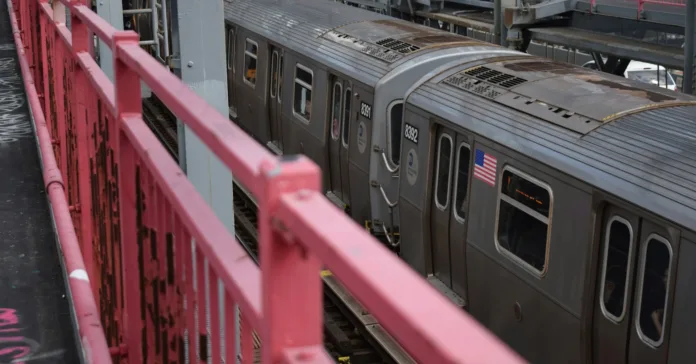A devastating accident on a Buenos Aires railway resulted in severe injuries and critical conditions after two trains collide due to a prolonged signal malfunction
In a grievous incident on Friday morning, two trains collided in the Buenos Aires district of Palermo, Argentina, resulting in at least 90 passengers sustaining injuries. One train, filled with passengers, rear-ended a maintenance train on a bridge at 10:31 AM local time. The collision was severe, prompting a swift response from emergency services.
Jorge Macri, Buenos Aires Chief of Government, reported that the fire department and paramedics efficiently extracted injured passengers from the wreckage within 40 minutes of the accident. Among the injured, two were critically injured and had to be airlifted to a nearby hospital for urgent care.
Embed from Getty ImagesThe collision has highlighted significant issues with the railway’s signal system, which, according to Omar Maturano, Secretary of the Transit Union, had been non-functional for ten days leading up to the incident. Maturano pointed to theft of high-voltage cables and a general degradation of railway infrastructure as critical factors contributing to the dysfunctional signal system.
Sources close to the ongoing investigation have informed that there were efforts underway to repair the signal system shortly before the accident occurred. Franco Mogetta, the Transportation Secretary, expressed his relief that there were no fatalities but acknowledged the gravity of the situation and the urgent need to investigate the root causes of this catastrophe.
Witnesses and survivors provided harrowing accounts of the crash. Christian Maidana, a passenger, recounted the sudden violent shaking of the train and the immediate chaos that ensued. He described his fear as he realized the train was still on the bridge, potentially exacerbating the peril.
The aftermath of the accident saw first responders navigating through challenging conditions to assist passengers. The fire department also had to manage the threat of a possible oil spill, adding complexity to the evacuation efforts.
Analysis:
The train collision in Buenos Aires serves as a stark reminder of the vital importance of maintaining and securing infrastructure to ensure public safety. Politically, this incident puts pressure on local and national authorities to scrutinize and improve transportation safety protocols and infrastructure management, potentially influencing upcoming electoral agendas and public trust in government operations.
Economically, the impact of such accidents stretches beyond immediate repair and medical costs, affecting public transportation reliability and the associated productivity losses. Sociologically, the event draws attention to the broader implications of infrastructure neglect on community safety and mobility, particularly in urban settings.
The ongoing problems with theft and vandalism of public utility equipment highlight a critical security issue that requires immediate and strategic interventions from both the government and private sectors. Moreover, the societal impact of such disruptions can deepen public unease and demand more robust responses to urban safety and security challenges.
This incident also underscores the need for comprehensive disaster response planning and public awareness campaigns to prepare and protect communities in similar emergencies
